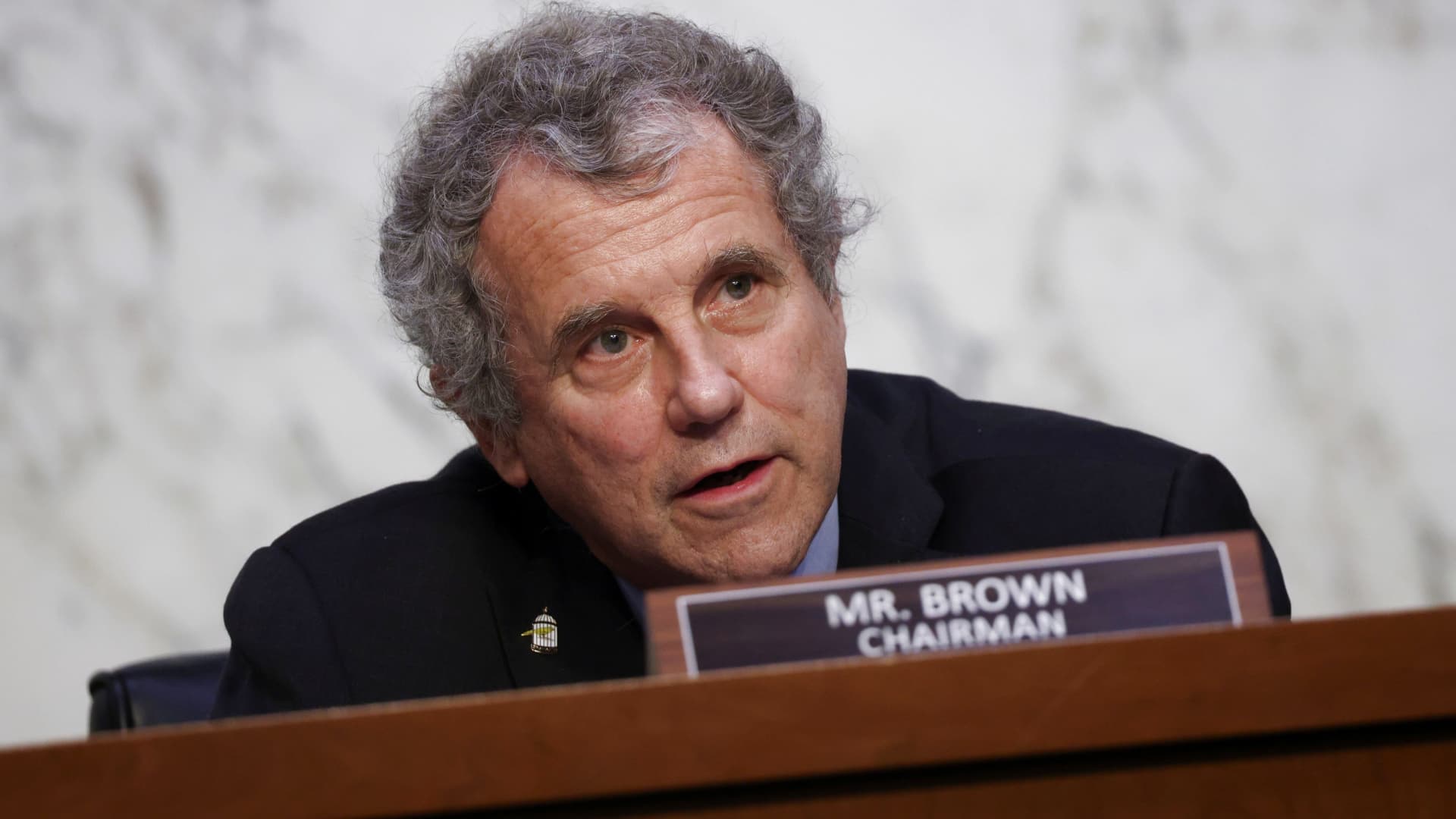Products You May Like
A bill to change Supplemental Security Income benefits for elderly, blind and disabled Americans is a first step in updating a program that has not been altered in decades, Ohio Democratic Sen. Sherrod Brown said.
Brown introduced the bill, the SSI Savings Penalty Elimination Act, on Thursday with Ohio Republican Sen. Rob Portman.
The proposal would raise asset limits that prevent approximately 8 million Americans who receive these federal benefits from having meaningful savings set aside.
Currently, the program has a $2,000 cap for individuals and $3,000 for couples. The legislation seeks to raise those limits, which have not been updated since 1989, to $10,000 and $20,000, respectively.
More from Personal Finance:
How taxes on wages for Social Security could change
Seniors have high hopes for prescription drug pricing reform
How changing work requirements may help SSI beneficiaries
Moreover, the bill also would index those caps to inflation, so they would be adjusted annually, much like Social Security benefits, and based on Consumer Price Index data.
“Rising costs and inflation is hurting all Americans, but especially our nation’s seniors and those with disabilities,” Portman said in a statement. “Yet the Supplemental Security Income program that serves these vulnerable populations hasn’t been updated in decades and punishes them for trying to save responsibly.”
Updating the program’s asset limits would “expand economic opportunity and mobility for people with disabilities,” a J.P. Morgan Chase & Co. Policy Center report found.
Many SSI beneficiaries are eager to see changes to the program, which has not been altered in decades. That includes increasing benefits, which are below or close to the federal poverty level. The average monthly benefit for all recipients is currently $625.50. They also want to see changes to rules that discourage beneficiaries from working by cutting their benefits.
“I want to do much, much more,” Brown said of SSI reform, in a Tuesday interview with CNBC.com
The lawmaker previously proposed a more comprehensive bill, the SSI Restoration Act, which would make those changes to the program.
It should be national in scope. And when I say national, I really do mean national.Sen. Sherrod BrownDemocratic senator from Ohio
Both senators from Ohio are hoping to get the bill passed as part of other legislation. Brown said he expects unanimous Democratic support, while Portman’s support will help encourage Republican votes.
“We’re looking at different avenues, different vehicles,” Brown said. “I’m very committed to this and more as we move forward.”
“It is long-past time for Congress to once again update SSI’s asset limits, which have become overly restrictive and prevent the accumulation of even modest personal savings,” Bill Sweeney, senior vice president at AARP, said in a statement.
The Supreme Court recently ruled that Puerto Rico residents are not eligible for SSI benefits.
“[SSI] should apply to everybody who’s eligible, and it should be national in scope,” Sen. Brown said. “And when I say national, I really do mean national.”
The efforts to reform SSI are part of Brown’s job “to give voice to people in my state who don’t have much of a voice,” he said.
That includes other issues, like the expanded child tax credit and student loans.
Monthly child tax credit payments for up to $300 per child for eligible families expired in December. However, families are still benefiting from that when they filed their tax returns this spring, Brown said.
“We’re not giving up on it,” Brown said of efforts to renew the enhanced credit and monthly payments.
“I have not done anything that got the response at home and around the country that that did,” he added.
Moreover, on Tuesday morning, Brown hosted a Senate committee meeting where borrowers shared their experiences with student loans.
“I am urging the president to do everything he can,” Brown said of student loan reform considerations. “And I hope we can do something in Congress, but with this 50/50 majority we probably can’t.”
